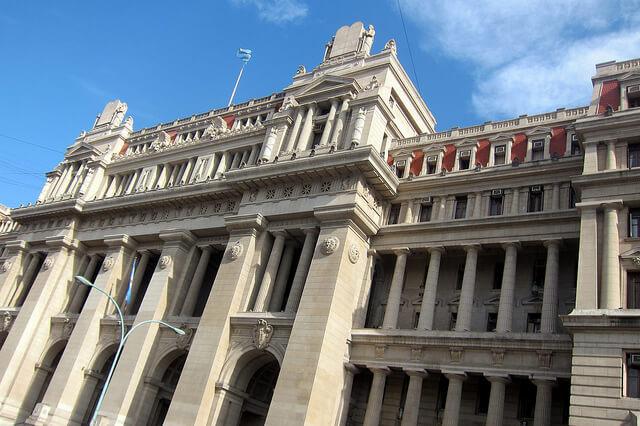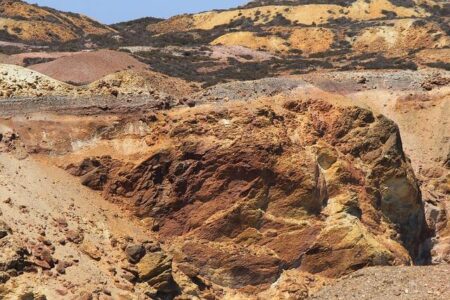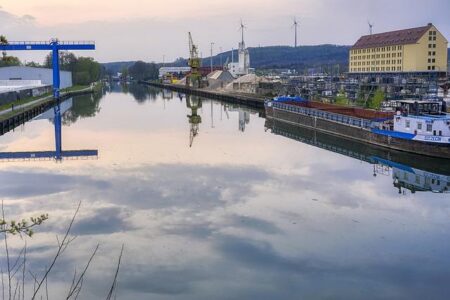Argentina’s Supreme Court has uncovered a cache of archives linked to the Nazi regime, shedding new light on the country’s historical ties to World War II-era activities. The discovery, announced this week, emerges amid ongoing investigations into Argentina’s role as a refuge for Nazi fugitives following the war. The newly found documents are expected to provide critical insights into the networks and individuals involved, prompting renewed scrutiny of decades-old allegations and raising questions about historical accountability.
Argentina’s Supreme Court Uncovers Hidden Nazi Regime Archives
In a landmark discovery, Argentina’s highest judicial body has revealed a trove of documents believed to be connected to the Nazi regime. These archives, previously hidden within the depths of government storage, contain sensitive materials that shed new light on the extent of Nazi activities and their post-war influence in South America. The Supreme Court has emphasized the significance of this finding, underscoring its potential to reshape our understanding of historical networks and the movement of key figures following World War II.
The unearthed archives include:
- Official correspondence between Nazi officials and agents in Argentina
- Photographs and personal diaries of known operatives
- Financial records pointing to covert funding channels
- Maps and strategy documents reflecting wartime planning
| Category | Details |
|---|---|
| Documents Found | Letters, diaries, financial ledgers |
| Period | 1939-1945 and post-war years |
| Potential Impact | Historical revision, judicial inquiries |
Authorities plan to launch a comprehensive investigation to verify the authenticity and implications of these materials. Experts and historians anticipate that this unprecedented archive could unlock new narratives about Argentina’s role during and after the Second World War. The Supreme Court’s proactive In a landmark discovery, Argentina’s highest judicial body has revealed a trove of documents believed to be connected to the Nazi regime. These archives, previously hidden within the depths of government storage, contain sensitive materials that shed new light on the extent of Nazi activities and their post-war influence in South America. The Supreme Court has emphasized the significance of this finding, underscoring its potential to reshape our understanding of historical networks and the movement of key figures following World War II.
The unearthed archives include:
- Official correspondence between Nazi officials and agents in Argentina
- Photographs and personal diaries of known operatives
- Financial records pointing to covert funding channels
- Maps and strategy documents reflecting wartime planning
| Category | Details |
|——————-|————————————|
| Documents Found | Letters, diaries, financial ledgers |
| Period | 1939-1945 and post-war years |
| Potential Impact | Historical revision, judicial inquiries|
Authorities plan to launch a comprehensive investigation to verify the authenticity and implications of these materials. Experts and historians anticipate that this unprecedented archive could unlock new narratives about Argentina’s role during and after the Second World War. The Supreme Court’s proactive stance signals a commitment to uncovering truths that may have long been obscured.
Investigation Sheds Light on Possible Historical Covers-Ups and Collaboration
Recent revelations from Argentina’s Supreme Court have uncovered previously hidden archives that may redefine the understanding of the country’s involvement during and after World War II. These documents suggest that certain sectors within the government and military might have played roles in sheltering individuals linked to the Nazi regime. Experts analyzing the archives highlight the potential existence of coordinated efforts to obscure the true extent of these connections, hinting at long-standing institutional protection and possible collaboration.
Among the newly found documents are:
- Correspondence between high-ranking officials and Nazi affiliates
- Records of covert financial transactions
- Travel manifests showing irregular border crossings
| Document Type | Date Range | Significance |
|---|---|---|
| Secret Memos | 1944-1947 | Possible policy directives for hiding fugitives |
| Passport Logs | 1945-1952 | Unregistered entries suggest unauthorized migration |
| Financial Statements | 1946-1950 | Evidence of clandestine funding routes |
Calls for Greater Transparency and Strengthened Legal Measures to Address Nazi Ties
Following the recent discovery of Nazi-era archives by Argentina’s Supreme Court, public outcry for enhanced transparency has intensified across political and social spectrums. Activists and historians are demanding the immediate declassification of all related documents to shed light on the extent of collaboration and cover-ups that may have persisted post-World War II. The findings have spotlighted long-standing allegations that Argentine authorities provided refuge to several Nazi fugitives, prompting calls for a thorough reevaluation of historical narratives and legal accountability.
Legal experts emphasize the urgent need to fortify Argentina’s judicial framework to better address crimes linked to fascist elements from the past. The calls include:
- Establishing specialized tribunals dedicated to investigating historical war crimes and their local facilitators.
- Implementing stricter archival access laws to prevent the concealment of sensitive historical records.
- Introducing legislative reforms that impose harsher penalties for denying or minimizing the atrocities committed under the Nazi regime.
| Measure | Purpose | Expected Outcome |
|---|---|---|
| Specialized Tribunals | Dedicated investigation of war crimes | Judicial clarity and justice for victims |
| Archival Access Laws | Transparency of historic data | Prevented data suppression |
| Legislative Reforms | Harsher penalties for denial/minimization | Strengthened historical memory protection |
The Way Forward
The discovery of archives connected to the Nazi regime by Argentina’s Supreme Court marks a significant development in the ongoing efforts to confront historical injustices and underscores the enduring quest for truth and accountability. As investigations continue, the findings may shed further light on Argentina’s complex ties to this dark chapter of history and pave the way for renewed scrutiny into unresolved cases from the era. Authorities and historians alike await the full implications of the archive’s contents, which promise to contribute to a deeper understanding of the past and its lasting impact on the present.




